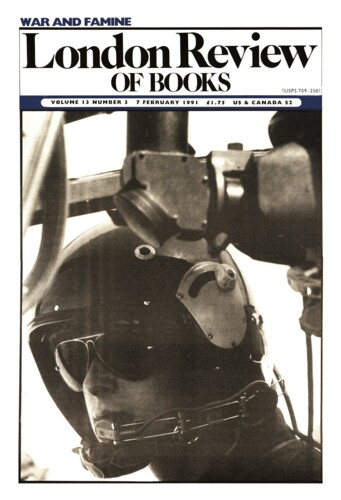For Gail and Zellman Warhaft and in memory of Sasha Warhaft 1985-1988
All I can hope is that the voice of Kavadias may be heard, however faintly, from the bridge on a dark night somewhere in the Indian Ocean.
Gail Holst Warhaft, translator: The Collected Poems of Nikos Kavadias
1
Tonight, as the tropic day drops its sail
and flocks of marabou are flying west,
I’m needled by a need to have it out,
the cancerous secret in my chest.
I was a midshipman on a mail-boat line
that did the run from Cairo to Marseilles.
She was a passenger – an Alpine flower –
and soon my friend, my sister you could say.
A skinny, sad, aristocratic girl,
whose rich Egyptian father had cut his throat,
she took her sadness on long voyages,
hoping to leave it somewhere, like a coat.
She carried Bashkirtsev’s ‘Journal’ about,
regarded Avila’s saint with devotion,
recited me mournful poems in French,
and stared for hours at the wide blue ocean.
And I, a lost soul, familiar only
with the bodies of whores and the lash of the sea,
listened in ecstasy, as to a saint,
and found a child’s joy in her company.
I gave her a cross to wear round her neck,
she gave me a wallet to ride on my heart.
I was the saddest man in all the world
reaching the port where we had to part.
On cargo boats I used to think of her
as an accomplice, guardian angel, friend.
Her photo in the fo ’c ’ sle was my far
oasis, Ithaca, journey’s end.
I should leave it at that. My hand is shaking.
My lungs are inflamed by the scorching air.
Exotic swamp lilies stink to high heaven,
and a stupid marabou’s squawking out there.
But I’ll go on ... One tropic night in port,
completely bottled, tankarded, drammed,
I staggered, around midnight, along the road
towards the dirty hovels of the damned.
Disgusting women pulled the sailors in;
one of them, cackling, snatched my cap
(an old French custom of the whores’ quarter).
I didn’t really want her but chased her up.
A narrow room, as filthy as another,
the plaster peeling from a blistered wall;
She was a rag-doll with a croaking voice,
and dark eyes focused on nothing at all.
She switched the light off and we both went down.
I felt her bones, smelt absinthe on her breath,
her body. And I woke, as poets say,
‘When rosy-petalled dawn had strewn the earth’.
Her face was ashen. In the morning light
such pitiful desolation showed
that quickly, as if frightened, I took out
my wallet to pay her what I owed.
Twelve French francs ... but she gave a sudden cry,
and stared at me like a lunatic –
at me and my wallet. And I froze too
for I had seen the cross around her neck.
Forgetting my cap, I ran like crazy,
gasping, stumbling, but a foul disease
was working in my blood, and even now
it gives me hell at times like these.
The sailors I’ve served with say of me
I’m a tough sort of bastard and twisted too,
that I don’t screw girls and I shoot cocaine.
The buggers wouldn’t blame me if they knew.
My hand shakes ... it’s fever ... I’ve been distracted,
staring at a motionless marabou
and thinking as he stares back at me
how foolish and lonely: I’m just like you.
2
I heard the voice but who was speaking?
The radio officer lolls in his chair
and stokes a pipe to carry him past
the Siren’s song, Le Cimetière
Marin. He changes course for kinder seas,
where a man can steer by his childhood stars
and every lighthouse beckons him home
to Piraeus – cranes and balconies and bars –
where bead curtains click in a hot wind spiced
with hashish. In the engine-room his heart
is running steadily, and at the bow
wave after wave falls apart, falls apart
like an opened book. Hexameters roll
through his head in an older voice, that brings
Odysseus over the wine-dark sea
to the rise and fall of flying-fish wings.
Furrows the oars cut screws reopen.
The radio officer sits in the dark
imagining sailcloth, a tilting plank,
and himself bait for the man-trap shark.
He reddens his pipe, and through the smoke
there comes in a woman who does not speak –
Calypso, the Egyptian – but tonight
I hear a woman’s voice speaking not Greek
but English. Marrying her voice to his
in Ithaca (New York), she learns despair
deferred, while keeping watch or studying
the instruments at midnight from his chair.
His odyssey prepares her for her own:
the bright stars blown out one by one,
the straits, the rip-tide, watches, instruments
that monitor the sinking of her son.
The dark is full of voices. Ship to ship
and ship to shore, they throw a line
across the waves, and sometimes they entwine:
Kavadias’s, Homer’s, hers, and mine.
3
With no Penelope, no Telemachus,
Kavadias wrote ballads in old age
for Philip, his grand-nephew, and I think
he now repays a woman for her language,
delighting her small son with odysseys
until her landfall in their anchorage.
Send Letters To:
The Editor
London Review of Books,
28 Little Russell Street
London, WC1A 2HN
letters@lrb.co.uk
Please include name, address, and a telephone number.

